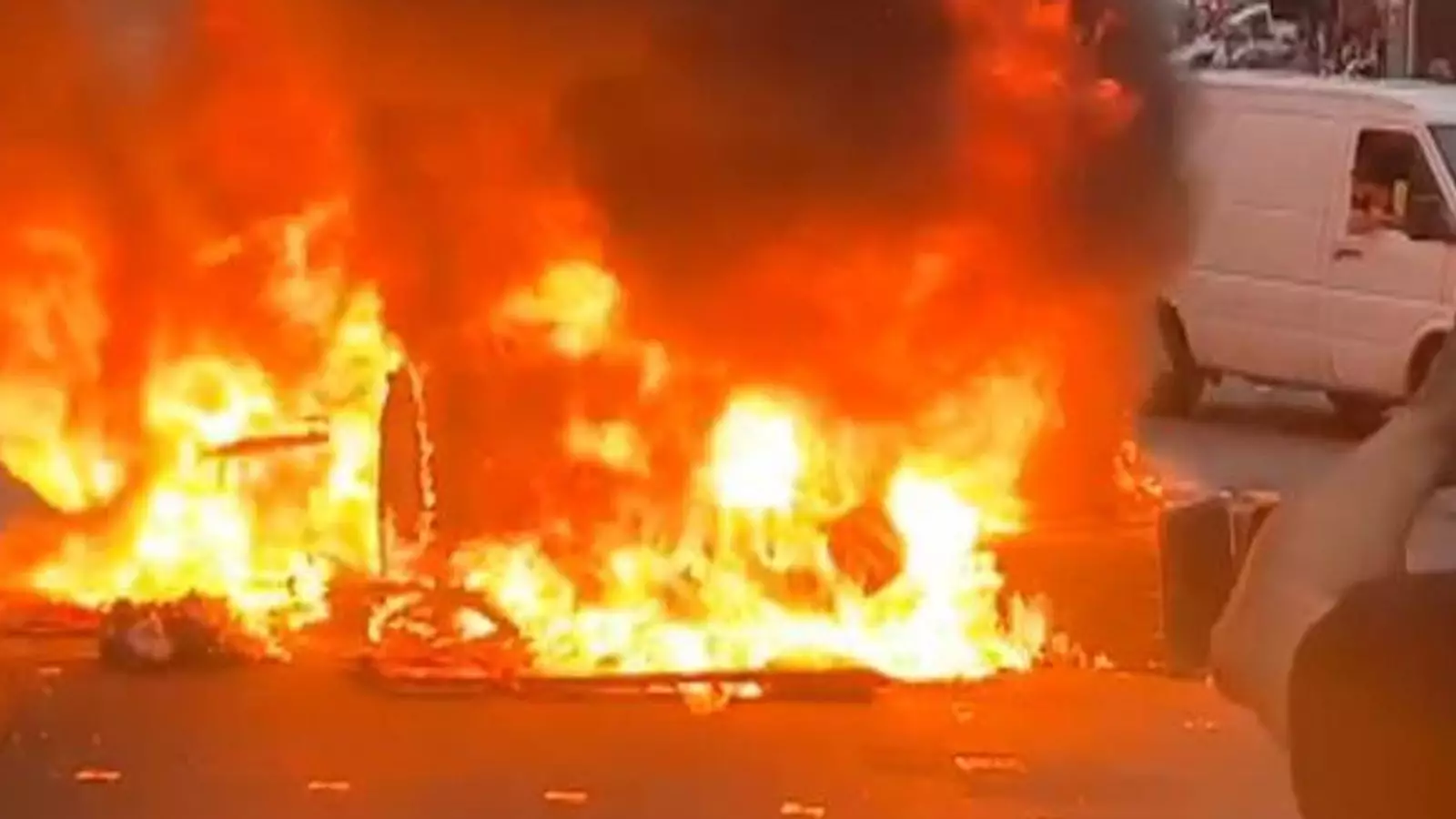On a seemingly ordinary Thursday night in Leeds, the calm veneer of the Harehills neighborhood was shattered by violent riots, culminating in significant property damage and a heightened sense of fear within the community. The incident serves as a stark reminder of the fragility of community cohesion in the face of escalating tensions, as a bus was set ablaze and police officers were met with hostility. Central to this unfolding drama was a key suspect, Iustin Dobre, 37, who faces serious charges, including arson and violent disorder, as well as the ripple effects of a broader unrest that has since captivated public attention.
The immediate catalyst for the riots was purportedly a police intervention aimed at addressing a child protection issue. However, the situation rapidly deteriorated, leading to a chaotic scene characterized by overturned police vehicles and clashes between rioters and law enforcement. It is essential to recognize that the riots did not occur in a vacuum. Instead, they were influenced by a complex interplay of social, economic, and political factors that have historically marked marginalized communities. The frustrations simmering beneath the surface—stemming from systemic inequalities and lack of community support—were ignited that night, transforming a confrontation between authorities and local residents into a full-blown riot.
In the aftermath of this upheaval, West Yorkshire Police indicated their commitment to thoroughly investigating the incidents and apprehending those responsible for the escalating violence. Yet, the strategy adopted by the police raises questions about their approach to community policing and conflict resolution. Many within the community often feel misunderstood or alienated by law enforcement, which can exacerbate tensions rather than mitigate them. As the police presence increased in the days following the riots, the challenge now lies in rebuilding trust and ensuring that community concerns are addressed collaboratively.
In a bid to defuse the situation, community leaders and local residents have been calling for calm, urging their fellow citizens to avoid falling prey to the escalating divisions. Notably, Green Party councillor Mothin Ali emerged as a key figure in these efforts, advocating for unity in the face of adversity. His public condemnation of divisive political commentary, particularly from figures like Nigel Farage, underscores the importance of understanding the unique dynamics within Harehills. Ali’s active involvement in de-escalating tensions was commendable, illustrating the role that community leaders can play during crises.
However, the discord between community interests and external political opinions is palpable. Farage’s comments, which suggested a parallel between the events in Leeds and the “politics of the subcontinent,” reveal an ongoing trend where external political actors, often without a comprehensive understanding of local issues, exploit situations for their own gain. This betrayal of community context not only alienates local voices but can also manipulate public discourse, distracting from the real issues at hand.
The events in Leeds highlight a critical need for holistic solutions to the underlying problems fueling unrest in marginalized communities. Open dialogues involving community members, local government, and law enforcement can pave the way for a more cooperative approach. The Leeds City Council has taken initial steps toward addressing community concerns following the riots by agreeing to an urgent review of the circumstances that escalated violence. Partners like Romanian and Roma-led organizations must be included in these discussions to ensure they accurately reflect community needs and foster long-term stability.
As local authorities continue to navigate the aftermath of the riots, the lessons learned must encompass not only the immediate need for law and order but also the imperative for inclusivity, understanding, and reconciliation. This incident is a call to action, reminding us of the critical role that social cohesion plays in the health of communities. Each individual, especially community leaders, bears the responsibility to work collectively towards a future where improvement in relations between diverse groups yields lasting peace—not just the absence of violence, but the presence of understanding and mutual respect.


Leave a Reply